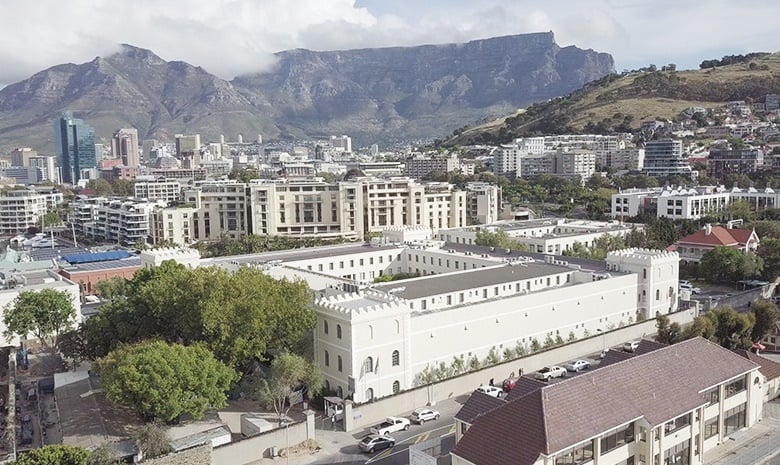
According to a recent Future of Jobs report by the World Economic Forum (WEF), by 2022, no less than 54% of all employees will require significant reskilling and upskilling. Whilst it is clear that education is necessary for the future world of work, how does an MBA fit into the picture?
Many of the skills required for future work are actually key features of the leadership capabilities taught in leading MBA programmes globally. Associate Professor Kosheek Sewchurran, interim director of the University of Cape Town Graduate School of Business (UCT GSB), believes that the MBA will continue to dominate as the programme best positioned to prepare students for the future world of work. Despite all the talk of the changes wrought by the 4th Industrial Revolution, industry today still seeks graduates with core business skills, something which is not likely to change in the near future.
However, businesses are also seeking thinkers, innovators and entrepreneurs with the leadership capability, vision and drive necessary to build companies. In fact, many of the core competencies that have historically been thought of as “soft skills” will become skills that are core to future-proofing one’s career. Many companies actively seek out managers who are more emotionally intelligent and self-aware. “Therefore all of the UCT GSB’s programmes focus on developing self-knowledge and self-mastery in our students,” says Sewchurran. “One of the ways we do this is through exploring how people communicate, how messages are interpreted and how this process can be improved upon. We also encourage our students to cultivate deep self-awareness. This is a basic starting point for resilience and success in the world of work today. “
He says the UCT GSB is committed to keeping programmes such as the MBA relevant by adequately preparing graduates for changes in industry using a host of partnerships and centres of excellence that form part of the greater community to broaden the MBA experience. “As we evolve as an institution, we are partnering with other organisations such as the Centre for Disruptive Technologies, the Hasso Plattner Institute of Design Thinking at UCT (d-school), the Allan Gray Centre for Values-Based Leadership, the Bertha Centre for Social Innovation and Entrepreneurship and the Raymond Ackerman Academy of Entrepreneurial Development.”
Sewchurran explains that a good MBA must work to ensure that students get to practise what they are learning so that they can hit the ground running when they start working. “The reality is that managers and leaders don't operate on a plane removed from the world around them where they can employ abstract, rational thinking to lay out their options and pick the most applicable theory. They are constantly in situations that require on-going adjustments and adaptations rather than pre-determined plans. To be successful in this kind of context you need a certain amount of practical wisdom that only comes from experience.”
He says that augmenting the MBA’s business fundamentals with experiential learning is therefore vital to ground students in the realities they need to face to lead in a complex environment. This needs to be achieved through a variety of approaches including the study of relevant case studies, reflection on one’s own experience and practical or consulting assignments.
The UCT GSB is one of an increasing number of business schools globally that offer a range of options both in terms what you can study (specialisation streams) and how you can study it (full-time, modular, part-time or blended learning).
The GSB’s expertise in teaching students how to produce excellence in tough operating environments has made its MBA programme an internationally sought-after qualification. “Our country and continent need more skilled men and women in business to help grow the economy while also advancing the social agenda,” says Sewchurran. "As a top school, located in a dynamic emerging market, we have a responsibility to ensure that we are training a diverse pool of future leaders who are equipped with the skills and attitudes to move this continent forward.”
Sewchurran adds that in South Africa there are many strong candidates who meet the entry requirements for the MBA but lack financial resources. He believes it is therefore critical to make funding and scholarships available to academically high-calibre applicants.
“For many students, studying at the GSB is the opportunity of a lifetime as the school is internationally renowned and is one of just three business schools in Africa with triple-crown accreditation, with endorsements from EQUIS (the European Foundation for Management Development), AACSB (The Association to Advance Collegiate Schools of Business), and AMBA (The Association of MBAs),” says Segran Nair, Director of Open Academic Programmes at the school.
“An MBA is a big investment that can be expected to pay big dividends - both personal and professional - for graduates,” he adds. “But we know that many high potential students are not even applying because they lack the finances.”
“Previously, only students who had already been accepted onto an academic programme could apply for funding. But we have streamlined the system so that once an applicant demonstrates their intention to study, they can apply for a scholarship right away,” says Nair.
The application process for both scholarships and admissions is open from July to October.
Darren Ravens, Marketing Manager at the GSB, explains that a key objective of the school is to increase student diversity. “We pride ourselves on being a world-class university, but firmly rooted in Africa. This means we need to represent the market we are serving. Each year we strive to recruit a diverse cohort of students, representative of race, gender and nationality,” he says.
“We encourage applicants to get their funding applications in sooner rather than later, and not wait until they find out that they have been accepted. A UCT GSB scholarship can make a huge difference in students’ lives. It reduces their stress, lifts a weight off their shoulders and lets them concentrate fully on their studies.”
For more information and to apply please visit the UCT GSB website.
Scholarship applications close on October 31, 2019.